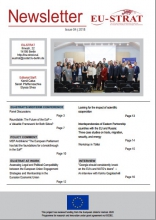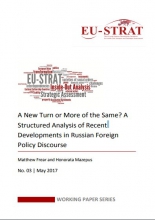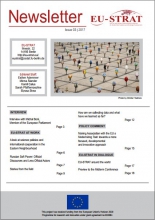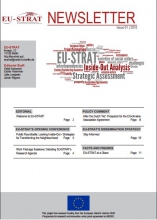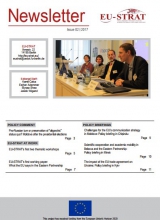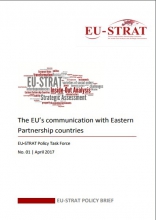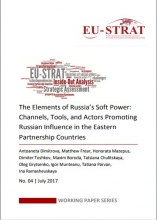The EU-STRAT program is the acronym for a broader title - "EU-STRAT", which aims to study the EU's relationship with the Eastern Partnership countries, investigating a series Factors, actors, trends and sectoral processes that have a significant impact on the state of EU policy in Eastern Europe.
Partner institutions. Freie Universität Berlin (FUB) (coordinating institution) Team leader: Prof. Dr. Tanja A. Börzel. Team:Dr. Julia Langbein, Dr. Esther Ademmer Kaja Kreutz, Elyssa Shea. Leiden University (UL) (co-coordinating institution) Team leader: Dr. Antoaneta Dimitrova, Team: Dr. Dimiter Toshkov Dr. Matthew Frear Dr. Honorata Mazepus. Fondation Maison des sciences de l’homme (FMSH) Team Leader: Dr. Laure Delcour. Team: Dr. Sylvie Gangloff. Institute of International Relations and Political Science, Vilnius University (VU) Team leader: Prof. Ramūnas Vilpišauskas, Team: Dr. Dovilė Jakniūnaitė, Dr. Margarita Šešelgytė, Dr. Laurynas Jonavičius, Eglė Kontvainė (administrative staff), Vilius Mačkinis (administrative staff). Ukrainian Institute for Public Policy (UIPP) Team leader: Mr. Ildar Gazizullin. University of St. Gallen. Team leader: Prof. Dirk Lehmkuhl, Team: Dr. Katharina Hoffmann. Centre for Eastern Studies (OSW) Team leader: Dr. Marta Jaroszewicz Team: Dr. Adam Eberhardt, Dr. Szymon Kardas, Dr. Marcin Kaczmarski, Kamil Całus, Tadeusz Iwański, Kamil Kłysiński. European Social, Legal and Economic Projects (ESTEP) Team leader: Dr. Klaudijus Maniokas, Team: Renata Pakalnytė, Darius Žeruolis. The School of Young Managers in Public Administration (Sympa) Team leader: Ms. Ina Ramasheuskaya, Team: Dr. Tatsiana Chulitskaya. Institute for Development and Social Initiatives (IDIS Viitorul) Team leader: Dr. Igor Munteanu. University of Birmingham (UoB) Team leader: Dr. Rilka Dragneva, Team: Dr. Kataryna Wolczuk, Mr. Xavier Rodde.
